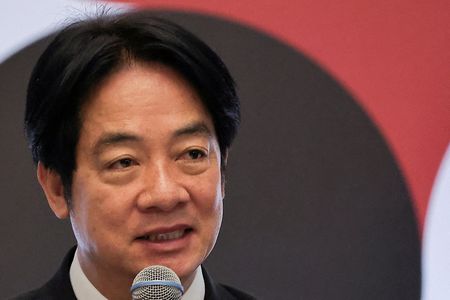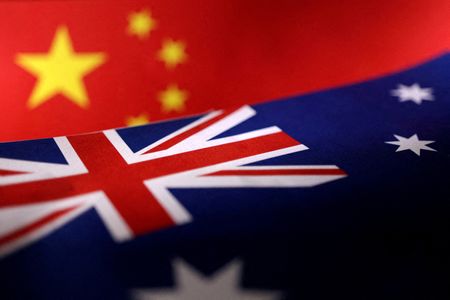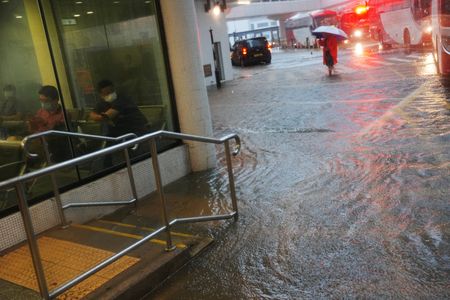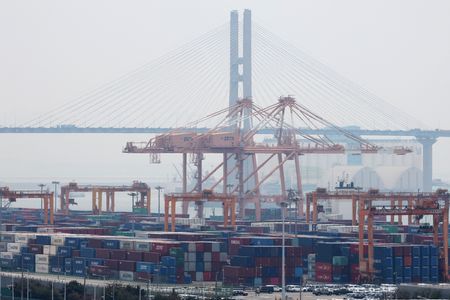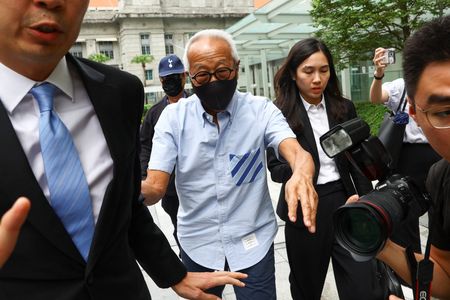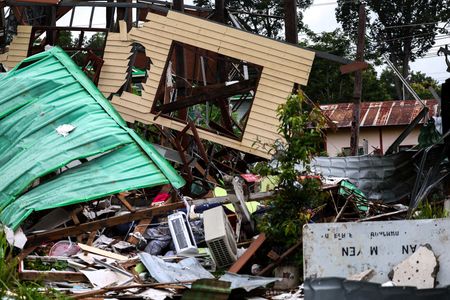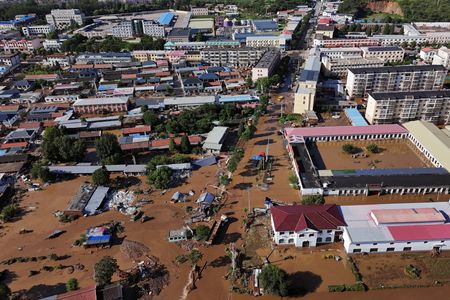TAIPEI (Reuters) – Taiwan and China need to talk to each other to achieve peace given the “multifold changes” in the international situation, Taiwan’s President Lai Ching-te said on Monday, calling for dialogue instead of confrontation.
Lai, who China detests as a “separatist”, has repeatedly called for talks with Beijing, which has stepped up its military and political pressure against the democratically-governed island it sees as sovereign Chinese territory.
But both China and Taiwan face pressure from the new administration of U.S. President Donald Trump, who has imposed tariffs on China and threatened similar measures against imported semiconductors, a sector Taiwan dominates.
Speaking in Taipei to members of the Taiwanese business community who have invested in China, Lai said Taiwan and China’s common enemies were natural disasters and their common goal was the well-being of people on both sides of the Taiwan Strait.
“Therefore, we should, especially at a time of multifold changes in the international situation, have a good dialogue and exchanges between the two sides of the strait in order to achieve the goal of peace,” he said.
Taiwan very much welcomes talks with China on the basis of equality without preconditions and dialogue should replace confrontation, but Taiwan’s future can only be decided by its people, Lai added.
China’s Taiwan Affairs Office did not immediately respond to a request for comment. China says Taiwan must accept that the two sides of the strait are part of “one China”, something Lai and his government have refused to do.
Lai said there can be no illusions about peace, and Taiwan should aim for peace through strength by bolstering its defences, and must stand shoulder-to-shoulder with other democracies.
“Only with sovereignty is there the country. Only with Taiwan is there the Republic of China,” he added, referring to the island’s formal name.
The defeated Republic of China government fled to Taiwan in 1949 after losing a civil war with Mao Zedong’s communist forces, who set up the People’s Republic of China in Beijing.
(Reporting by Ben Blanchard and Jeanny Kao; Editing by Muralikumar Anantharaman and Raju Gopalakrishnan)

